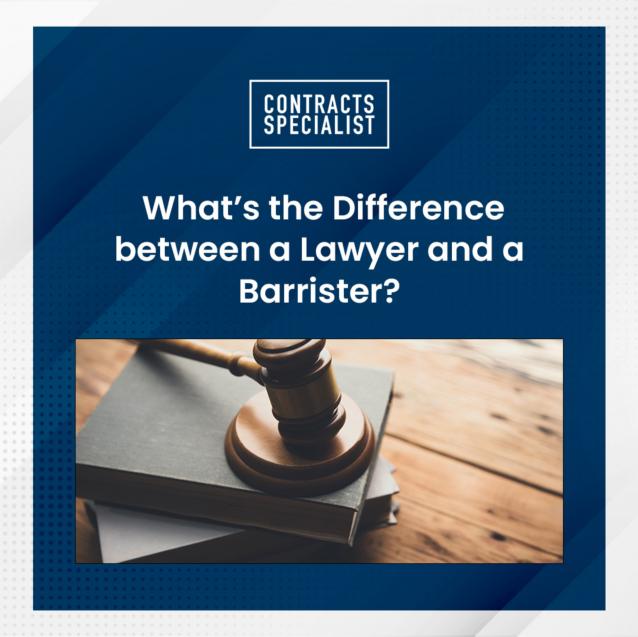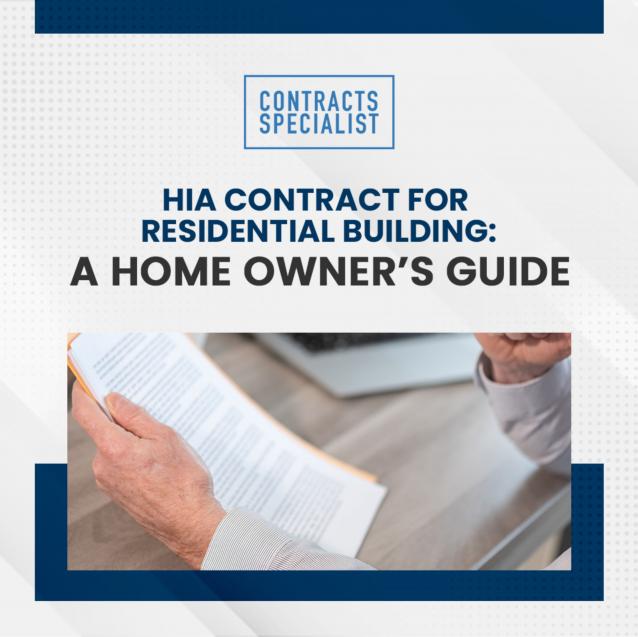
What is the Home Building Act?
By Contracts Specialist|June 29, 2022
The Home Building Act 1989 is the law that regulates the residential building industry and certain specialist work in New South Wales. The Act outlines the minimum statutory rights of homeowners, builders, and contractors. This includes warranties, payments, deposit, insurance, and other matters relating to residential construction work.
The main concern of the Home Building Act is residential building work done by a contractor or tradesperson. This can be the construction of a new home, or the alteration or renovation of a dwelling such as building an extension to an already existing home or structure, and updating a bathroom or kitchen.
The Home Building Act focuses on residential construction. This can be anything from a new home all the way down to an extension or renovation for your current property, like changing out pipes in one room so they don't burst during wintertime.
The legislative scheme consists of the following acts and rules:
Home Building Act 1989 (NSW)
Home Building Regulation 2014 (NSW)
Civil and Administrative Act 2013 (NSW)
Civil and Administrative Tribunal Rules 2014
Home construction or renovation work is quite a big investment for homeowners, so the Home Building Act was created to give homeowners some level of protection.
How the Home Building Act protects homeowners
Homeowners are protected by the Home Building Act, because under the Home Building Act:
Amendments to the Home Building Act
The new Home Building Act was passed in 2014 to bring the country into compliance with its international obligations and reduce any unnecessary red tape for builders.
The changes made were a step in the right direction to help protect traders and builders from vulnerable positions. Now, homeowners have been required to report any defects that may arise so they can be remedied as soon as possible.
What does the Home Building Act regulate?
The Home Building Act regulates a number of matters and here are some of them:
Building Disputes and the Home Building Act
A building dispute can arise when one party to a contract fails or is perceived by the other contracting parties as having failed in their obligations under law.
The Home Building Act covers many aspects of residential construction, including details about what happens if things go wrong during this process and how disputes between homeowners and builders are resolved.
The Home Building Act and how it applies to building disputes
Here are the most common types of building disputes:
Construction Defects according to the Home Building Act
Under the Home Building Act 1989 (NSW), there are two types of defects, non-major defects and major defects.
Non-major Defect: A non-major defect is any other defect that arises other than normal
wear and tear.
Major Defect: In 2015, the concept of ‘major defects’ replaced the term structural defects’ in the Home Building Act 1989 (NSW).
A two-step test is used to determine if a defect in the construction work is a major defect.
Step 1: Assess whether the defect is a major element of the building.
Step 2: Assess the seriousness of the defect’s potential consequences.
‘Major elements of the building’ refers to:
Building Dispute Resolution
In terms of building dispute resolution, the Home Building Act states that the NSW Fair Trading will first attempt to negotiate a suitable outcome between the homeowner and the builder.
Should mediation by Building Dispute Inspectors and negotiation be unsuccessful, the homeowner will be given information about what his other options are and this includes dispute resolution by the Home Building Service, or the involvement of the NSW Civil and Administrative Tribunal (NCAT).
Who can be consulted when a building dispute comes up?
A lawyer specializing in building and construction law or a Building and Construction Solicitor may be asked for legal advice when a building dispute occurs.
We fully understand that building disputes can be frustrating and confusing to clients. As construction law experts, Contracts Specialist deal with construction contracts and residential building disputes in NSW, day in and day out.
We have the experience and the expertise to investigate and carefully consider all the factors and circumstances surrounding your matter. With Contracts Specialist, you can be sure that you are getting the right legal advice.
The main concern of the Home Building Act is residential building work done by a contractor or tradesperson. This can be the construction of a new home, or the alteration or renovation of a dwelling such as building an extension to an already existing home or structure, and updating a bathroom or kitchen.
The Home Building Act focuses on residential construction. This can be anything from a new home all the way down to an extension or renovation for your current property, like changing out pipes in one room so they don't burst during wintertime.
The legislative scheme consists of the following acts and rules:
Home Building Act 1989 (NSW)
Home Building Regulation 2014 (NSW)
Civil and Administrative Act 2013 (NSW)
Civil and Administrative Tribunal Rules 2014
Home construction or renovation work is quite a big investment for homeowners, so the Home Building Act was created to give homeowners some level of protection.
How the Home Building Act protects homeowners
Homeowners are protected by the Home Building Act, because under the Home Building Act:
- only licensed builders can enter into home building contracts;
- certain information and terms and conditions are required to be included in home building contracts;
- home building works are required to be insured; and builders have statutory warranties that cannot be contracted out of.
Amendments to the Home Building Act
The new Home Building Act was passed in 2014 to bring the country into compliance with its international obligations and reduce any unnecessary red tape for builders.
The changes made were a step in the right direction to help protect traders and builders from vulnerable positions. Now, homeowners have been required to report any defects that may arise so they can be remedied as soon as possible.
What does the Home Building Act regulate?
The Home Building Act regulates a number of matters and here are some of them:
- Builders and tradespeople are required to hold a contractor’s license for the work that they do
- The incapacity of unlicensed contractors to claim damages under a contract in the case of a building contract dispute
- What the residential building contract should state when the project price is below $5,000 and when it is $20,000 or more
- The need for insurance and the details of what such insurance contracts should state and insure
- The importance of contracts and insurance to be implemented before work for the construction projects begins
- The maximum amount of a deposit
- How to deal with variations
- How to deal with progress payments
- The warranties for consumers and contractors
Building Disputes and the Home Building Act
A building dispute can arise when one party to a contract fails or is perceived by the other contracting parties as having failed in their obligations under law.
The Home Building Act covers many aspects of residential construction, including details about what happens if things go wrong during this process and how disputes between homeowners and builders are resolved.
The Home Building Act and how it applies to building disputes
Here are the most common types of building disputes:
- A homeowner’s non-payment, underpayment, or late payment for work done by a builder
- Building work was not done as agreed in the contract
- Disagreement as to the scope or quality of works
- Delay with progressing with the work or abandonment of works
- Incomplete or defective home building work
- Insurance claims
- Poor communication between the parties leading to relationship failure and then giving rise to points the points above or a combination of those
Construction Defects according to the Home Building Act
Under the Home Building Act 1989 (NSW), there are two types of defects, non-major defects and major defects.
Non-major Defect: A non-major defect is any other defect that arises other than normal
wear and tear.
Major Defect: In 2015, the concept of ‘major defects’ replaced the term structural defects’ in the Home Building Act 1989 (NSW).
A two-step test is used to determine if a defect in the construction work is a major defect.
Step 1: Assess whether the defect is a major element of the building.
Step 2: Assess the seriousness of the defect’s potential consequences.
‘Major elements of the building’ refers to:
- internal or external load-bearing component of a building that is essential to the stability of the building, or any part of it (including but not limited to foundations and footings, floors, walls, roofs, columns and beams)
- fire safety system
- waterproofing;
- the inability to inhabit or use the building (or part of the building) for its intended purpose;
- the destruction of the building or any part of the building;
- a threat of collapse of the building or any part of the building
Building Dispute Resolution
In terms of building dispute resolution, the Home Building Act states that the NSW Fair Trading will first attempt to negotiate a suitable outcome between the homeowner and the builder.
Should mediation by Building Dispute Inspectors and negotiation be unsuccessful, the homeowner will be given information about what his other options are and this includes dispute resolution by the Home Building Service, or the involvement of the NSW Civil and Administrative Tribunal (NCAT).
Who can be consulted when a building dispute comes up?
A lawyer specializing in building and construction law or a Building and Construction Solicitor may be asked for legal advice when a building dispute occurs.
We fully understand that building disputes can be frustrating and confusing to clients. As construction law experts, Contracts Specialist deal with construction contracts and residential building disputes in NSW, day in and day out.
We have the experience and the expertise to investigate and carefully consider all the factors and circumstances surrounding your matter. With Contracts Specialist, you can be sure that you are getting the right legal advice.



